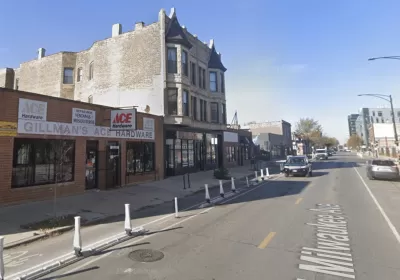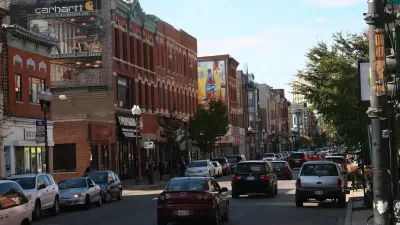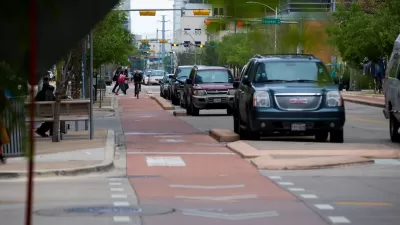The often unsubstantiated assumption that loss of street parking due to bike lane installations leads to lost business can have a chilling effect on bike infrastructure.

In an opinion for Streetsblog Chicago, Courtney Cobbs cites a Block Club Chicago article that claims that bike lanes installed on Milwaukee Avenue led to a loss of revenue for local businesses, such as a decades-old hardware store. "[Store owner Alan Gillman] claims that the repurposing of car storage into a curbside bike lane has 'ruined' his 75 year old hardware store, Gillman Ace hardware at 2118-2120 N. Milwaukee Ave. He claims that business is down 'at least a third' since the lanes were installed in fall 2020, and that he has had to lay off an employee, and may close the business." The Block Club Chicago article goes on to say that "Gillman claims that due to a lack of convenient car storage, he lost customers."
"Unfortunately, there was not much investigative journalism in the article to actually back up the claims that bike lanes are responsible for the decline in business," Cobbs notes. "There was no exploration as to whether Gilman tried other methods to attract more business or if he had even received direct complaints mentioning a lack of car storage from customers or potential customers." Meanwhile, the effects of a global pandemic on supply chains and household economics have had significant impacts on purchasing patterns.
Other business owners support the bike lanes, saying that plenty of metered parking remains available on Milwaukee.
Cobbs warns that the "irresponsible" Block Club Chicago article could lead aldermen and businesspeople to oppose bike lanes on similar grounds, despite a lack of evidence that bike lanes are a significant factor in business loss.
FULL STORY: Are bike lanes to blame for a drop in business for one hardware store in Logan Square?

Planetizen Federal Action Tracker
A weekly monitor of how Trump’s orders and actions are impacting planners and planning in America.

Maui's Vacation Rental Debate Turns Ugly
Verbal attacks, misinformation campaigns and fistfights plague a high-stakes debate to convert thousands of vacation rentals into long-term housing.

Restaurant Patios Were a Pandemic Win — Why Were They so Hard to Keep?
Social distancing requirements and changes in travel patterns prompted cities to pilot new uses for street and sidewalk space. Then it got complicated.

In California Battle of Housing vs. Environment, Housing Just Won
A new state law significantly limits the power of CEQA, an environmental review law that served as a powerful tool for blocking new development.

Boulder Eliminates Parking Minimums Citywide
Officials estimate the cost of building a single underground parking space at up to $100,000.

Orange County, Florida Adopts Largest US “Sprawl Repair” Code
The ‘Orange Code’ seeks to rectify decades of sprawl-inducing, car-oriented development.
Urban Design for Planners 1: Software Tools
This six-course series explores essential urban design concepts using open source software and equips planners with the tools they need to participate fully in the urban design process.
Planning for Universal Design
Learn the tools for implementing Universal Design in planning regulations.
Heyer Gruel & Associates PA
JM Goldson LLC
Custer County Colorado
City of Camden Redevelopment Agency
City of Astoria
Transportation Research & Education Center (TREC) at Portland State University
Jefferson Parish Government
Camden Redevelopment Agency
City of Claremont





























